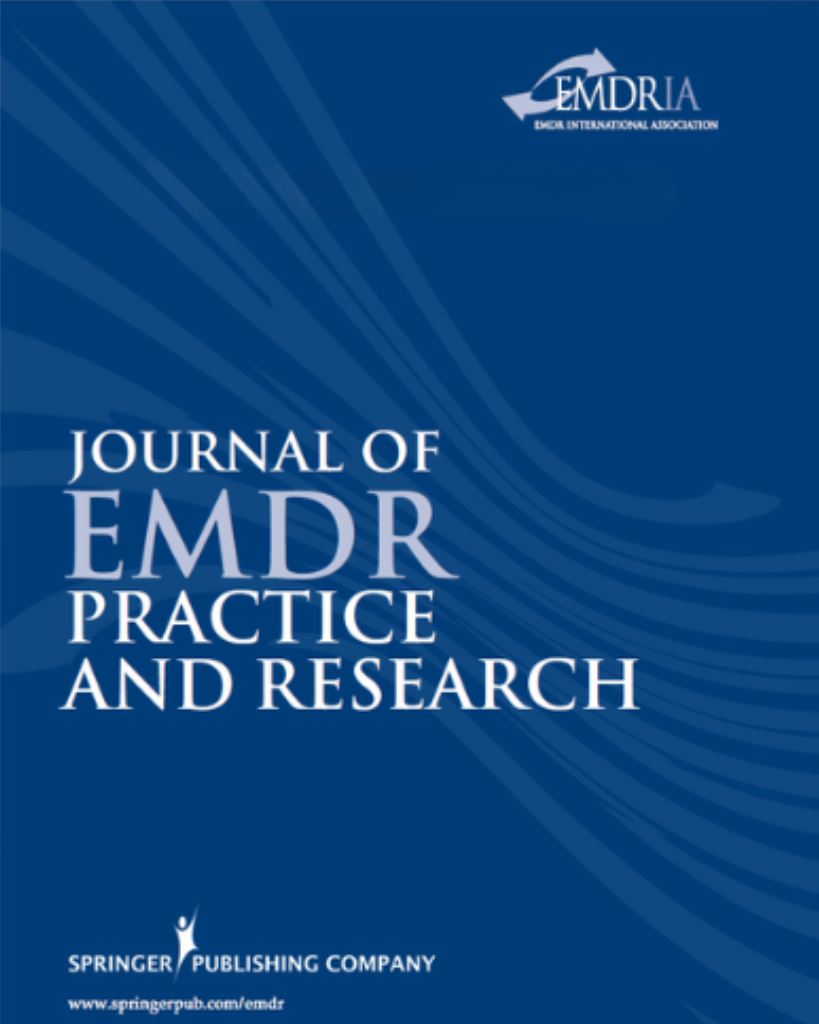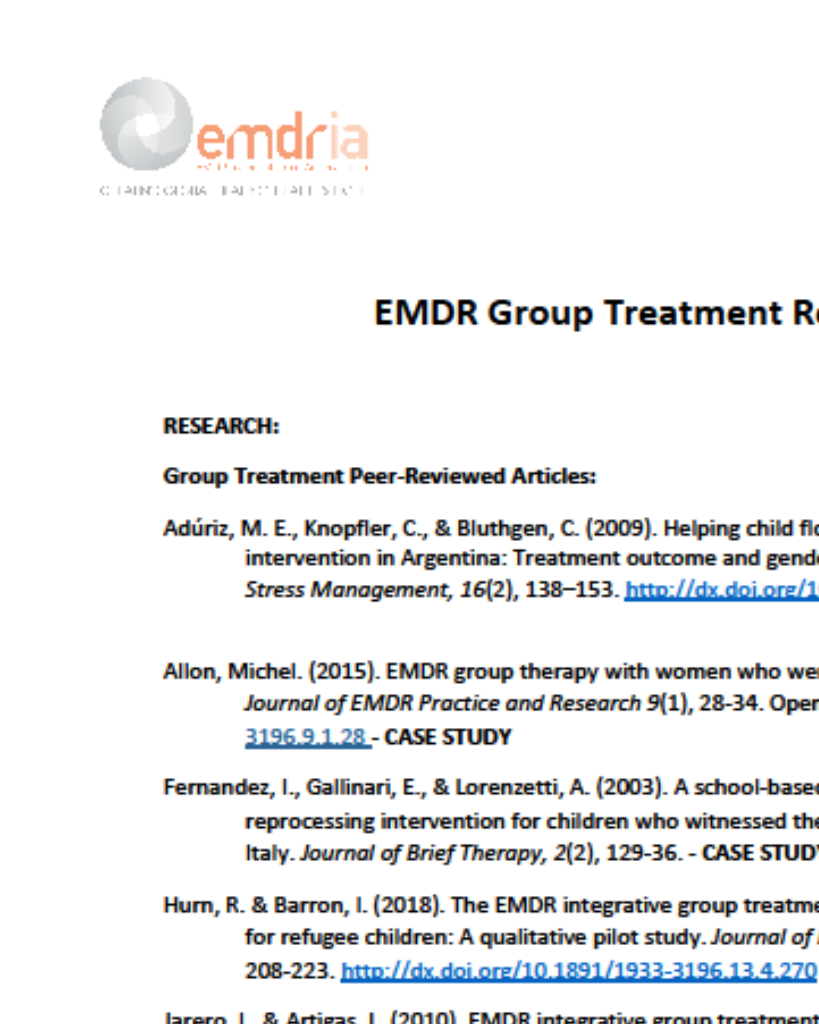The Efficacy of EMDR in the Treatment of Depression
Efficacy of EMDR psychotherapy in treating major depressive disorder by processing past or present trauma affecting the quality of life.
Article Abstract
“This study investigated the efficacy of eye movement desensitization and reprocessing (EMDR) psychotherapy in treating the primary diagnosis of major depressive disorder by processing past or present trauma that was affecting the quality of life. The 26 diagnosed participants were randomly assigned to 6–8 sessions of EMDR treatment or the waiting list control. Beck Depression Inventory-II, Trauma Symptom Checklist-40, and Quality of Life Index Inventory were used at pre- and postassessment to measure depressive and trauma symptoms and quality of life of the participants for both groups. The targets for EMDR therapy were selected by the participants determining the negative cognitions most strongly associated with reduced functioning and then identifying a related disturbing event. Paired and independent sample t tests were applied for data analysis. Results showed significant improvements on all measures with large effect sizes. At 95% confidence interval, the results found EMDR as an effective treatment for depressive and trauma symptoms and for improving the quality of life of the participants. A generalization effect was found for the depressogenic cognitions, with the number and strength of negative beliefs markedly decreased at posttreatment, even for beliefs not targeted in the therapy. Three-month follow-up interview with the EMDR participants confirmed that the results had been maintained.”
—Description from publisher
Article Access
Open Access
Gauhar, Y. W. M. (2016). The Efficacy of EMDR in the Treatment of Depression. Journal of EMDR Practice and Research, 10(2), 59-69. https://doi.org/10.1891/1933-3196.10.2.59
About the Journal
The Journal of EMDR Practice and Research is a peer-reviewed publication devoted to integrative, state-of-the-art papers about Eye Movement Desensitization and Reprocessing. It is a broadly conceived interdisciplinary journal that stimulates and communicates research and theory about EMDR, and their application to clinical practice. The Journal of EMDR Practice and Research is the Official Publication of the EMDR International Association.
Date
June 1, 2016
Creator(s)
Yasmeen Wajid Mauna Gauhar
Topics
Depression
Practice & Methods
Comparative Studies
Extent
11 pages
Publisher
Springer Publishing Company
Rights
Copyright © 2016 EMDR International Association
APA Citation
Gauhar, Y. W. M. (2016). The Efficacy of EMDR in the Treatment of Depression. Journal of EMDR Practice and Research, 10(2), 59-69. https://doi.org/10.1891/1933-3196.10.2.59
Series
10
Installment
2
Audience
EMDR Therapists
Language
English
Content Type
Peer-Reviewed, RCT
Original Source
Journal of EMDR Practice and Research
Access Type
Open Access





